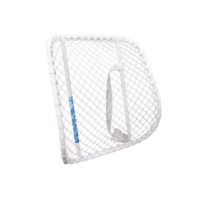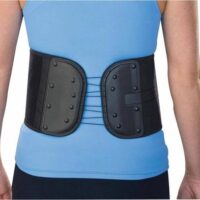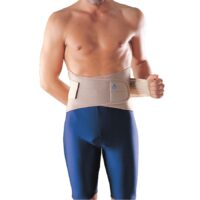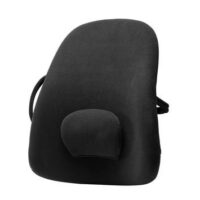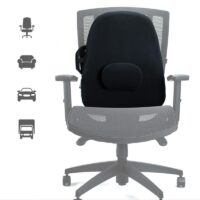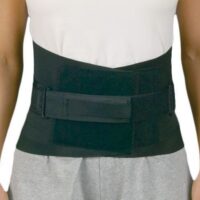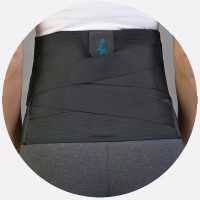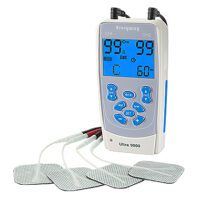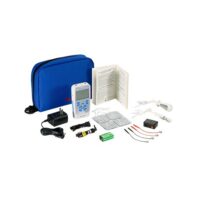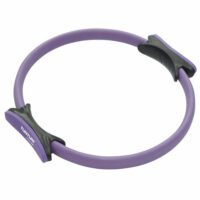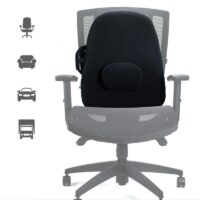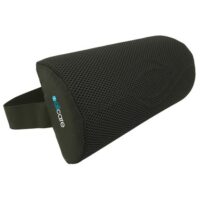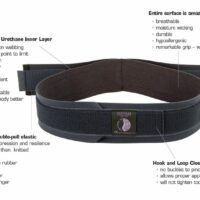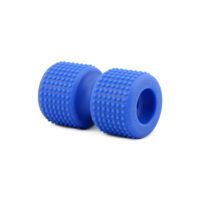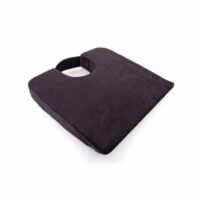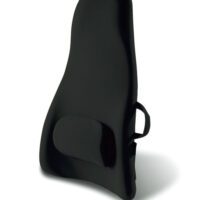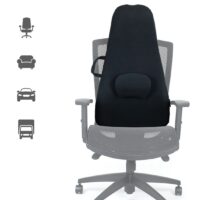Article by J. Miller, S.Armfield
Discover the Solutions for Back Pain: An Essential FAQ Guide

1. What Causes Back Pain?
Back pain can arise from a multitude of causes such as poor posture, muscle strain or spasms, arthritis, herniated discs, osteoporosis, scoliosis, sciatica, spinal stenosis, and other underlying medical conditions. Moreover, factors such as injury, excessive physical activity, or simply aging can contribute to the onset of back pain.
2. How Can I Relieve Back Pain At Home?
Relieving back pain at home can be achieved through a combination of methods. One way to relieve pain is by applying heat or ice to the affected area. Another solution is to take over-the-counter pain medication.
In addition to these methods, performing gentle stretches and exercises, using proper posture and body mechanics, and sleeping on a supportive mattress can also help relieve back pain. Practising relaxation techniques such as deep breathing and meditation can also have a positive impact.
Applying topical pain-relieving creams or ointments, using a back brace or support cushion, and avoiding activities that worsen the pain are other strategies that can be used to relieve back pain at home.
However, if the pain is severe or persistent, it’s best to seek medical advice for a proper diagnosis and treatment plan. This will ensure that the underlying cause of the pain is identified and the most effective course of treatment is prescribed.
3. Is It Safe To Exercise With Back Pain?
Exercising with back pain is a nuanced issue, as it depends on the cause and severity of the pain. For some types of back pain, gentle exercises and stretching can provide relief, but it’s crucial to seek medical advice before starting any new exercise program. In some cases, certain movements may worsen the pain and should be avoided. When exercising with back pain, it’s essential to listen to your body and avoid movements that cause increased discomfort.
4. What Is The Best Mattress For Back Pain?
The best mattress for back pain depends on individual needs and preferences. A mattress that provides good support and conforms to the spine’s natural curves is usually recommended. Popular options include memory foam, latex foam, and innerspring. It’s important to choose a mattress with the right firmness level and replace it every 8-10 years or sooner if it shows signs of wear. To ensure comfort and adequate support, it’s recommended to try out several options before making a purchase.
5. How Long Does Back Pain Usually Last?
The duration of back pain can vary greatly, as it depends on the cause and severity. In some cases, self-care measures may resolve the pain within a few days to a week, while in others, it may be persistent or chronic, lasting several weeks or months. If the back pain is severe, persistent, or accompanied by other symptoms, it’s essential to seek medical attention for an appropriate treatment plan.
6. Can Stress Cause Back Pain?
Stress can indeed contribute to back pain. When stressed, muscles can tense and spasm, leading to discomfort and pain in the back and neck. Stress can also interfere with sleep, causing fatigue and heightened pain sensitivity. Furthermore, stress can affect posture and body mechanics, resulting in strain and injury to the back muscles and tissues. To reduce the risk of stress-related back pain, it’s recommended to manage stress through exercise, meditation, and relaxation techniques.
7. How Can I Prevent Back Pain?
To reduce the risk of developing back pain, consider these tips: maintain a healthy weight, exercise regularly, use proper posture and body mechanics when lifting objects, utilise ergonomic equipment, sleep on a supportive mattress, stretch regularly to stay flexible, quit smoking, reduce stress, wear shoes with good arch support and cushioning, and avoid prolonged sitting or standing in one position.
8. When to Seek Medical Attention?
It’s important to see a physiotherapist or doctor if you’re experiencing persistent or severe back pain that affects daily activities, or if you have other symptoms such as numbness, weakness, or tingling in the legs, a history of medical conditions like cancer or osteoporosis, sudden or worsening pain, pain that persists for more than a few weeks despite self-care measures, a fever or unexplained weight loss, or incontinence such as loss of bladder or bowel control.
9. Back Pain as a Symptom?
Back pain can range from mild to severe, and sometimes it can be a sign of a more serious underlying condition, including muscle strains, herniated discs, and arthritis. If the back pain is accompanied by other symptoms, such as loss of bladder or bowel control, fever, or unexplained weight loss, it’s crucial to seek medical attention for a proper evaluation and treatment plan.
10. Treatment of Back Pain
The cornerstone of treating back pain is exercise, with other treatments serving as supplements to support and facilitate the ability to exercise. These may include:
Pain medication to alleviate discomfort. Heat or cold therapy for pain reduction and inflammation management. Massage to loosen muscle tension and reduce spasms. Acupuncture using fine needles to target specific pain points. Steroid injections to combat inflammation and relieve pain. In severe cases, surgery addresses structural problems and to alleviate pain. The optimal treatment plan is tailored to the individual’s specific needs and the underlying cause of the pain and involves working closely with a healthcare professional.
Your physiotherapist is uniquely trained to take into account your circumstances, anatomy, strength, biomechanics and pathology to tailor a programme to alleviate your pain and restore your life to you. Please seek their assistance directly or via your doctor’s referral.
Take charge of your back pain with the help of a personalised approach. Your physiotherapist offers a variety of effective treatment options to alleviate discomfort and get you back to your daily routine. Don’t let back pain hold you back any longer. Schedule an appointment today and start your path to a pain-free future. Convenient online booking: 24-hour availability. Book now!
Back Pain: Frequently Asked Questions
Back Pain Causes FAQs
- What Are The Most Common Causes Of Back Pain?
- How Do You Know If Your Back Pain Is Serious?
- What Are The Highest Frequency Causes of Lower Back Pain?
- How Do You Know If Your Back Pain Is Muscular?
Repeat & Incidental Back Pain FAQs
- What Causes Repeat Low Back Strains & Sprains?
- What Causes Back Pain Out Of Nowhere?
- What Causes Back Pain?
Youth Back Pain FAQs
Back Pain Treatment FAQs
- What Is The Best Treatment for Lower Back Pain?
- What Can You Do To Relieve Your Lower Back Pain?
- Could Real-Time Ultrasound Physiotherapy Help You Beat Back Pain?
Back Pain Exercises FAQs
- What Exercises Help Back Pain?
- What Are The Best Core Exercises?
- How Can An Exercise Ball Help Your Lower Back Pain?
- Does Back Massage Help?
Back Pain Prevention FAQs
Posture FAQs
What Causes Lower Back Pain?
Introduction
Lower back pain is a widespread issue in Australia, stemming from diverse conditions. As physiotherapists, we often encounter various causes of this pain. This guide aims to shed light on these causes and provide valuable insights for effective management.
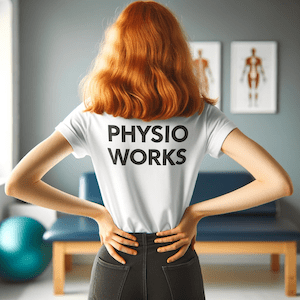

Muscle-Related Injuries
Muscle injuries are a predominant cause of lower back pain, including:
- Back Cramps and Muscle Pain: Typically resulting from overuse or strain.
- Core Stability Deficiency: Weak core muscles can lead to increased back strain.
- DOMS (Delayed Onset Muscle Soreness): Soreness affecting back muscles post-exercise.
Recent research underscores the importance of regular exercise and core strengthening in preventing these injuries.
Bone-Related Injuries
Bone health is crucial in lower back pain, encompassing conditions like:
- Spondylosis: Degenerative spine conditions.
- Spondylolysis or Stress Fracture: Common in athletes, such as cricket bowlers.
- Spondylolisthesis: Occurs when a vertebra slips over another.
- Osteoporosis: Causes bones to weaken, increasing fracture risk. Advancements in bone density scanning have improved early detection and management.
- Scheuermann’s Disease: Affects spinal bone growth in teenagers.
- Scoliosis: An abnormal curvature of the spine causing pain.
- Spinal Stenosis: A narrowing of the spinal canal leading to nerve compression.
Disc-Related Injuries
Spinal discs are vital for spinal health:
- Bulging and Disc Protrusions: These discs protrude or "slip" and can press on nerves.
- Herniated Disc: A more severe form of disc protrusion.
- Degenerative Disc Disease: Age-related disc wear and tear.
Minimally invasive surgical techniques have transformed the treatment of severe disc-related injuries where physiotherapy and other non-operative options fail to improve.
Back Joint Injuries
- Facet Joint Pain: Arises from arthritis or stress on these spinal joints.
Nerve-Related Injuries
Nerve issues can lead to:
- Nerve Pain and Pinched Nerves: Caused by spinal nerve compression from disc bulging or arthritic changes.
- Sciatica: Irritation of the sciatic nerve.
Physiotherapy and newer medications have been effective in managing these conditions. Some will require injection therapies or surgery.
Pelvis-Related Injuries
Pelvic issues also contribute to lower back pain:
- Sacroiliac Joint Pain: Involving joints connecting the spine to the pelvis.
- Piriformis Syndrome: Where the piriformis muscle irritates the sciatic nerve.
Pregnancy-Related Pain
- Pregnancy Back Pain: Often due to increased back strain during pregnancy. Prenatal physiotherapy programs are beneficial.
Systemic Diseases
Systemic diseases like Ankylosing Spondylitis, Fibromyalgia and Rheumatoid Arthritis can cause back pain.
Recent Research and Advancements
Current research emphasises a holistic approach to treating lower back pain. Techniques like yoga and Pilates, alongside traditional physiotherapy, and conservatively progressed gym programs show significant relief. The role of diet in managing weight and inflammation is increasingly recognised.
Best Treatments for Lower Back Pain
Treatment varies but often includes:
- Physiotherapy
- Pain management
- Strength and flexibility exercise programs
- Ergonomic adjustments
- Surgical interventions for severe cases
Conclusion
Lower back pain is a significant health concern in Australia. Understanding its causes and seeking professional physiotherapy advice can greatly improve life quality. Remember, early intervention is key for an effective recovery.
What to Do?
If you're experiencing lower back pain, it's vital to consult a physiotherapist or doctor. They can provide an assessment and customised treatment plan based on your specific condition.




